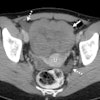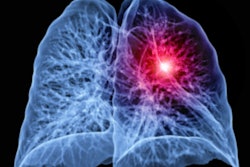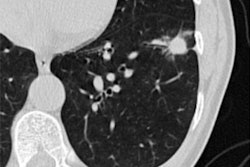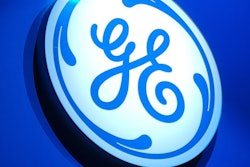Thursday, December 1 | 1:30 p.m.-2:30 p.m. | R6-SSCH10-3 | Room N228
Researchers will report on how artificial intelligence (AI) can help radiologists be more accurate and efficient for detecting lung nodules on chest CT exams.There is room for improvement for radiologists in detecting and measuring lung nodules. To see if AI could facilitate better performance, researchers from the University of Maryland retrospectively evaluated a commercial software application in a multicenter study including 10 radiologists and 151 chest CTs. Of the chest CT exams, 48 had at least one lung nodule and 103 were negative.
The radiologists read the exams first without any assistance and then again four weeks later with the help of AI. Overall, radiologist accuracy improved from an area under the curve of 0.73 without AI to 0.92 with AI. What’s more, sensitivity increased from 68% to 91% and the false-positive fraction decreased from 0.48 to 0.28. Mean reading time also dropped more than threefold from 336 seconds to 100 seconds, according to the researchers.
“AI can augment radiologist performance for lung nodule detection on chest CT, which is important for lung cancer screening and evaluation of incidental lung nodules and metastatic disease,” presenter Dr. Jean Jeudy and colleagues wrote.





















